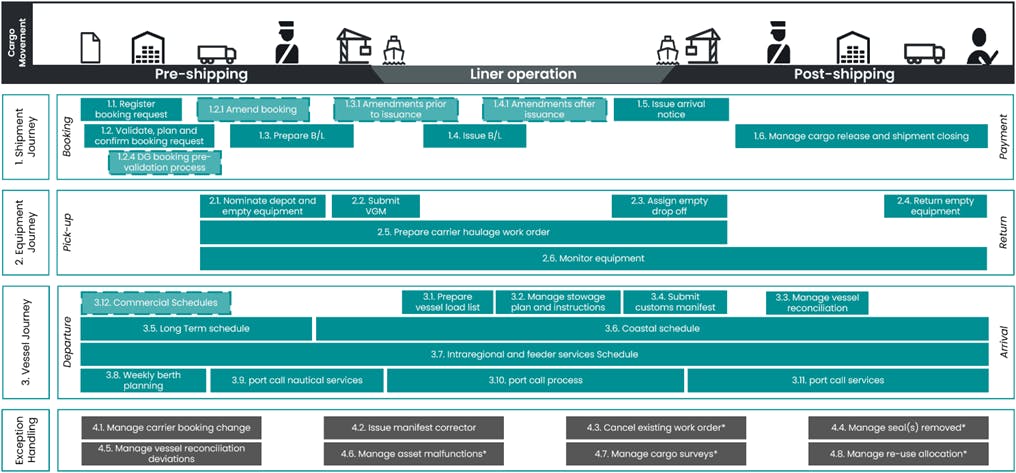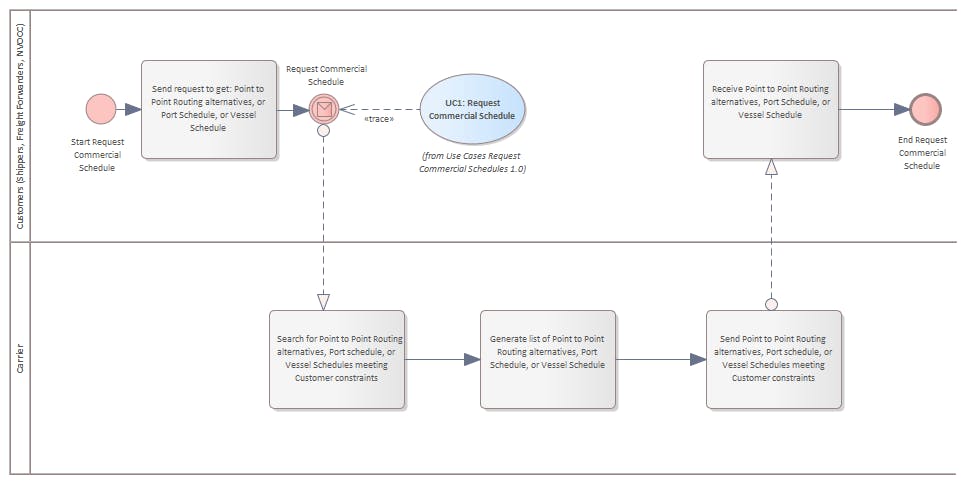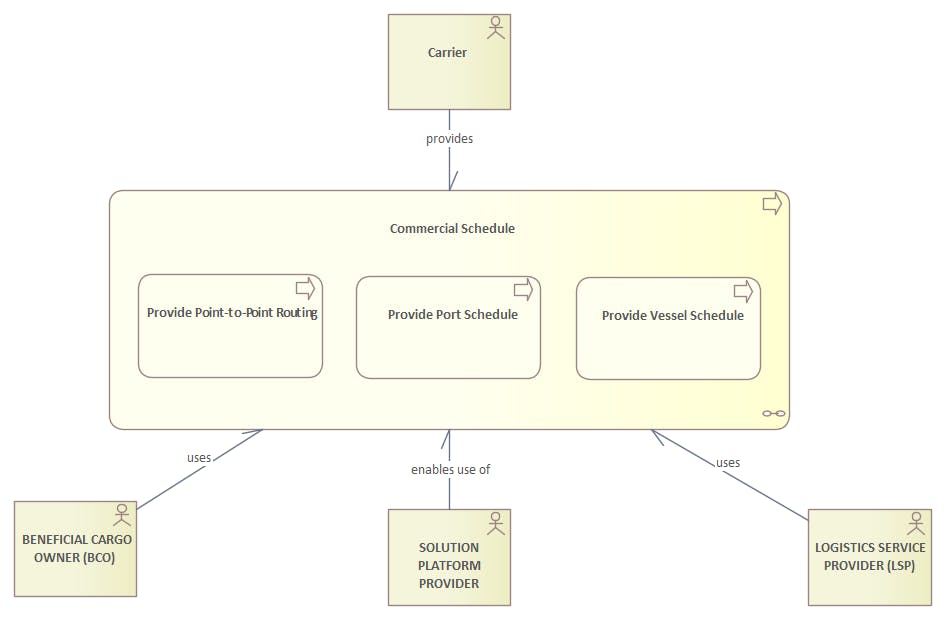1.1 Preface
DCSA envisions a digitally interconnected container shipping industry. Our mission is to be the de facto standards body for the industry, setting the technological foundation for interoperable IT solutions. Together with our member carriers, DCSA creates vendor-neutral standards for IT and non-competitive business practices. By working towards the widespread adoption of these standards, we aim to move the industry forward in terms of customer experience, efficiency, collaboration, innovation, and respect for the environment. Please refer to the DCSA website for more information.The objective of DCSA is to strengthen the container shipping industry’s ability to send and receive data across all parties in the industry. Furthermore, it aims to enhance inter-carrier cooperation based on shared requirements and to ensure interoperability by using a shared data language. Ideally, this language will be inspired by existing standards and aligned with the industry process definitions in the DCSA Industry Blueprint. DCSA does not point to the use of specific vendors’ technologies or systems and relies on open-source, shared requirements for the industry that can be used by all parties.1.2 Purpose
The DCSA Interface Standard for Commercial Schedules aims to simplify the exchange of information between carriers and BCOs, LSPs, and Solution Platforms, as related to obtaining point-to-point routings, port schedules, or vessel schedules. In doing so, this publication supports standardization of the fundamental information exchanged between carriers and BCOs, LSPs, and Solution Providers. The focus of this publication is to ensure agreement on the shared requirements and standards that must be followed to streamline inter-operational functionality and data sharing across relevant industry participants.Agreement on standards will ensure that data exchange interfaces, including functionality and data provided, will follow the same definitions and design. The aim is to ensure that the end-user experience remains consistent across all industry participants who use these standards.1.3 Scope
Commercial Schedules encompass various types of schedules and information that carriers could provide to Beneficial Cargo Owners (BCO), Logistics Service Providers (LSP), and Solution Platforms for commercial purposes. DCSA defines standards for three types of commercial schedules:- Commercial schedules - point-to-point routing: provides the product offering of single or multiple estimated end-to-end route options for a shipment in the pre-booking phase. This includes point-to-point specification of all transport legs, estimated timings, estimated schedules and interdependencies between transport legs.
- Commercial schedules – port schedule: provides, for a required specific port and starting date, the set of all vessels arriving and departing from the port with the corresponding estimated timestamps.
- Commercial schedules – vessel schedule: provides, for a required specific service and/or voyage and/or vessel and/or location, the timetable of estimated departure and arrival times for each port call on the rotation of the vessel(s).
1.3.2 Actors
In defining an interface standard, the interface describes all information exchanges between any two parties. For the exchange of information related to commercial schedules, the most relevant parties are:- Customers (BCO’s, LSP’s, Solution Platforms)
- Carriers.
1.4 Conformance
All parties in the container shipping industry are encouraged to implement and follow the data and interface requirements outlined and specified in this document. The requirements are linked to the Unified Modelling Language (UML) version 2.0 diagrams for design requirements as well as the logical data model and data definitions for information requirements, which must be implemented to conform to the agreed standards within the DCSA framework.1.5 Supporting publications
This document is supported by a range of supplementary DCSA publications. The supporting publications are listed in the table below and they can be found on the DCSA website
Document | Description |
|---|---|
The DCSA information model has been created to organise and catalog the information being generated or consumed in connection with the processes described in the DCSA industry blueprint. The information model is also used as a collective term to describe all products that model data. The information model includes a diagrammatic representation of selected data entities and their relationships with one another. | |
This document promotes the alignment of terms across all DCSA stakeholders in the container shipping industry. The glossary is published on the DCSA website in the context of the DCSA industry blueprint. | |
This document provides insights into as-is carrier processes. The DCSA industry blueprint comprises processes related to the movement of a container/equipment from one location to another, processes that are linked to a shipment/booking, processes that are considered critical for industry digitisation and standardisation efforts, and finally processes that are not considered commercially sensitive or of competitive advantage. |


